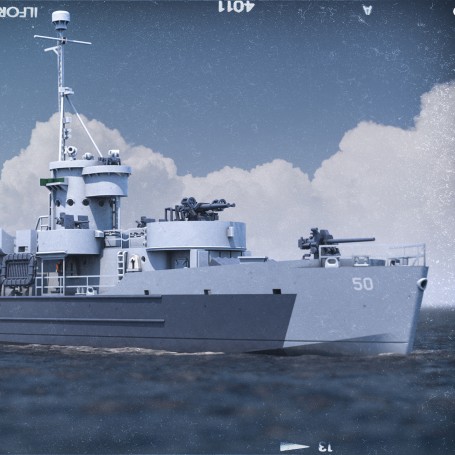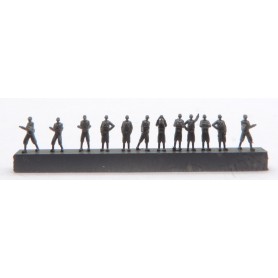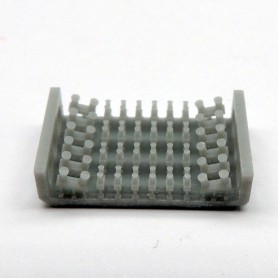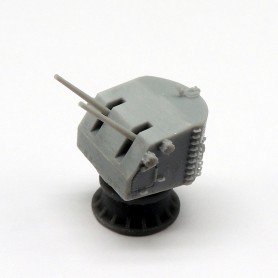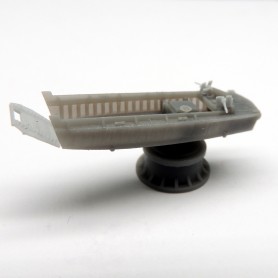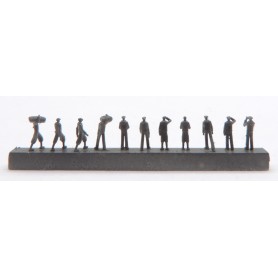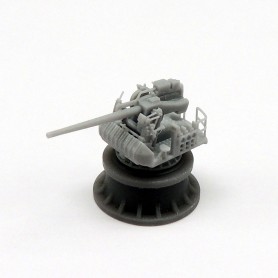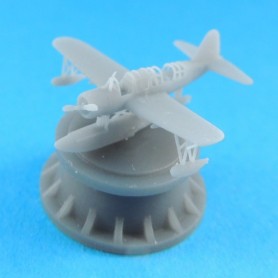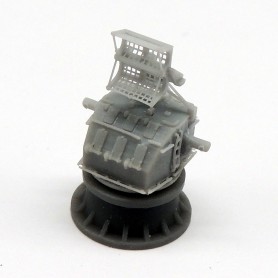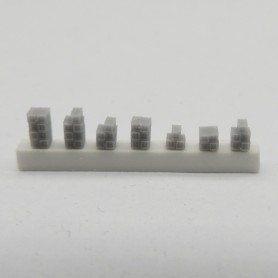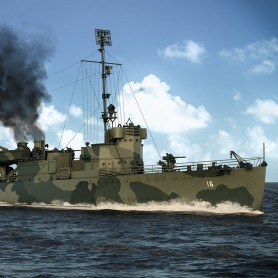Description
Set of one model kit, contains resin hull, 3D printed parts, photoetch fret, decals and instruction notice.
The Battle of Tarawa showed a gap in Navy resources for close in support of landing troops. The time interval between the end of shelling from the large ships and the arrival of the landing craft on the beach allowed the defenders to regroup. The Landing Craft Support was designed to fill this void. A total of 130 were made.
After providing close in support during the landings at Okinawa, many Landing Craft Support ships were placed on the radar picket stations as anti-aircraft platforms. When not on a picket stations, the ship would create smoke to hide the fleet at anchor and perform "skunk patrol" screening for suicide boats.
At the end of the war, surviving ships returned to the United States. Some were restored to action for the Korean War. Many were transferred to Japan (three were later transferred to Taiwan), France (and on to South Vietnam), Cambodia, Thailand, Greece, and other nations.
Only two ships are known to still exist. One has been highly modified as a fishing boat. The second was in Thailand and was kept in very similar configuration to its original (HTMS Nakha, formerly USS LCS(L)-102). The National Association of USS LCS(L) 1–130 was successful in having HTMS Nakha transferred to the association for public display in the United States.
Data sheet
Data sheet
- Categories
- Model kits
- Scales
- 1/350
- Ranges
- US Navy

